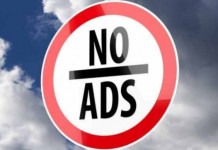In the last few months, I have been writing articles for the Springfield Business Journal based on interviews with local businessmen over the phone. Before that, I did podcasts in which I interviewed guest callers at length.
I’ve thought a time or two about the possibility of making a new podcast and using some of the better SBJ phone interviews for it. But I never went any farther than merely considering it, because I was afraid the Business Journal might not appreciate it, or else the interviewees might object—I would have to ask them both for permission.
 This PoynterOnline blog post by Paul Bradshaw brought that type of issue to mind again, but from a different angle. As an interviewee, he asked the journalist who interviewed him if he could blog the answers he provided in an email interview after the article went live.
This PoynterOnline blog post by Paul Bradshaw brought that type of issue to mind again, but from a different angle. As an interviewee, he asked the journalist who interviewed him if he could blog the answers he provided in an email interview after the article went live.
To his surprise, the journalist refused him permission to republish his own answers—then backtracked to the extent he could use his answers, but not her questions or any of her other email correspondence with him.
This raises an interesting question: Who “owns” the interview: the journalist who asked the questions or the interviewee who provided the answers? Or for that matter, the news agency that is publishing the story in the first place?
In this era of Internet journalism, when questions and answers can be easily obtained through digital means without recourse to complicated interview setups, this could end up being an important question.

































Please Note: IANAL.
The copyright of a work is owned by its creator, unless otherwise contracted (for example in a emplyee situation). Each of the answers is created by you, but there might be some doubt if each answer separately can be considered a `work’. The interview as a whole is clearly created by the journalist, so the copyright lies there, I would say. But copyright on the whole not necessarily implies copyright of the parts. For example an anthology can have a copyright separate from its parts. The rights to include the parts would have to be obtained from the respective copyright owners.
The journalist cannot prevent you from using your own answers unless you have explicitely transferred the copyright to him/her. Conversely you cannot use the questions if you don’t have permission, and certainly not a similar compilation as the interview as a whole. But you could make a kind of article out of your answers, editing them if necessary to make clear what it is about. You probably also could make the order more logical in hindsight, omit things, add other things to make it more uniform and coherent.
Copyright covers written words, not conversations.
If the person answered your questions via the written word, they could claim copyright infringement, but, if you said, up front, that it was an interview for an article, then they would have a very difficult time proving any form of infringement.
The article itself is copyrighted to the author unless the author has done it as a work for hire or sold the copyright.
Before you sell an article, be sure what rights you are selling.
Good resources for copyright information, regarding journalism, are websites of journalist organizations and schools of journalism. I also recommend these two sites —
http://www.publaw.com/
http://www.ivanhoffman.com/
.
Yes, to be copyrightable, a work must be in ‘fixed’ form. A live concert is not copyrightable; the video of it is.
So the interviewee could edit and put down his own answers, with simple paraphrases of the questions (‘And then they asked me about my earlier work, and I said…’)
As for the interviews for the Business Journal, I suspect (not being a lawyer) that your position would differ according to whether you work as staff or freelance; whether you were assigned to talk with a person or initiated the interview yourself, and so on. But courtesy (to say nothing of delicacy) demands you ask them for permission first, so I applaud the courteous approach you have taken.